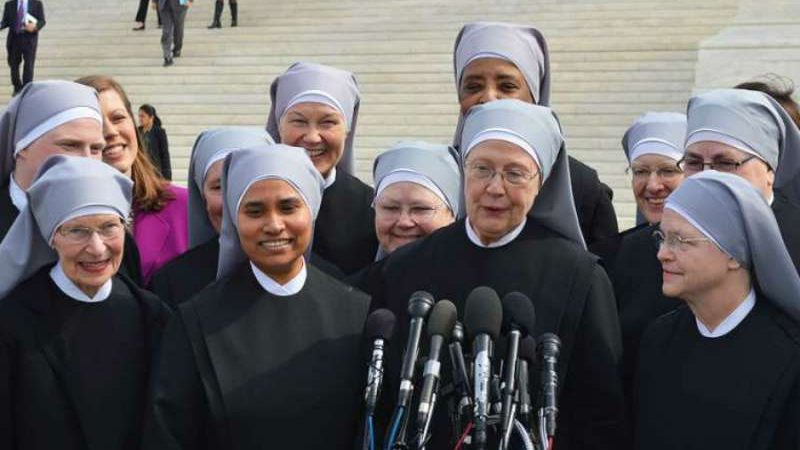The Supreme Court announced on Monday that it will hear oral arguments by phone next month. Justices will hear arguments from lawyers remotely across six dates in the first two weeks of May in an effort to keep the business of the court moving during the coronavirus outbreak.
A statement from the Supreme Court, released April 13, said that ten cases would be assigned dates in the first two weeks of May.
"The Court will hear oral arguments by telephone conference on May 4, 5, 6, 11, 12 and 13," the statement said. "The following cases will be assigned argument dates after the Clerk's Office has confirmed the availability of counsel."
"In keeping with public heath guidance in response to COVID-19, the Justices and counsel will all participate remotely. The Court anticipates providing a live audio feed of these arguments to news media," said the court's release.
Among those cases included in the revised schedule are the Little Sisters of the Poor v. Pennsylvania and Trump v. Pennsylvania.
Those cases were originally slated to be heard April 29, but the court announced April 3 that they would be postponed, along with the other cases due for hearings across a two week window, “in keeping with public health guidance in response to COVID-19.”
The cases concern action by the Commonwealth of Pennsylvania to end the religious order’s exemption to the Department of Health and Human Services so-called contraception mandate.
In 2017, the Trump administration issued a rule exempting the Little Sisters and other religious entities from the mandate. State attorneys general for Pennsylvania and California then challenged the exemption in court.
The Little Sisters lost their case against Pennsylvania at the Third Circuit Court of Appeals in July of 2019, and lost their case against California at the Ninth Circuit Court in October. They appealed to the Supreme Court, which agreed in January to hear their case.
The release from the Supreme Court on Monday said that live audio of the arguments would be made available to media. Dates for hearing arguments in individual cases have not yet been assigned, the court said, and would be announced after lawyers in different cases have confirmed their availability.
The Little Sisters of the Poor have spent years in litigation related to the mandate. The 2010 Affordable Care Act mandated certain preventive coverage in health care, and the Obama administration interpreted the mandate to include coverage for contraceptives and sterilizations.
Religious institutions, including the Little Sisters and Catholic dioceses, said that a government “accommodation” still forced them to violate their religious beliefs in the provision of morally-objectionable procedures in employee health plans.
The Little Sisters’ case has already been heard by the Supreme Court in in 2016, when justices sent the case back down to lower courts, instructing the religious entities and the government to come to an agreement whereby the wishes of both parties could be attained. The Trump administration issued the exemption following that instruction, resulting the lawsuits by Pennsylvania and other states.
On April 8, Mark Rienzi, president of the Becket Fund for Religious Liberty which represents the sisters, said that religious order had been dragged through the courts for years.
“This, frankly silly, saga has gone on for eight or nine years with, at times, the federal government, and with, at times, state governments pretending that they need nuns in order to give people contraception, which has always been a whacky argument and a bad position for the government to take,” he said.
Also among the cases due to be heard remotely are Our Lady of Guadalupe School v. Morrissey-Berru and St. James School v. Biel— both of which involve the “ministerial exception.” The cases focus on whether or not two Catholic schools in California are free to fire religion teachers without interference from the courts, due to the “ministerial exception” which exists under the First Amendment.
Becket, which also represents the schools, is arguing that the courts and government cannot “second-guess” the employment decisions of religious institutions on staff members who provide religious instruction to children.

